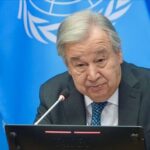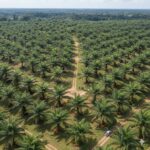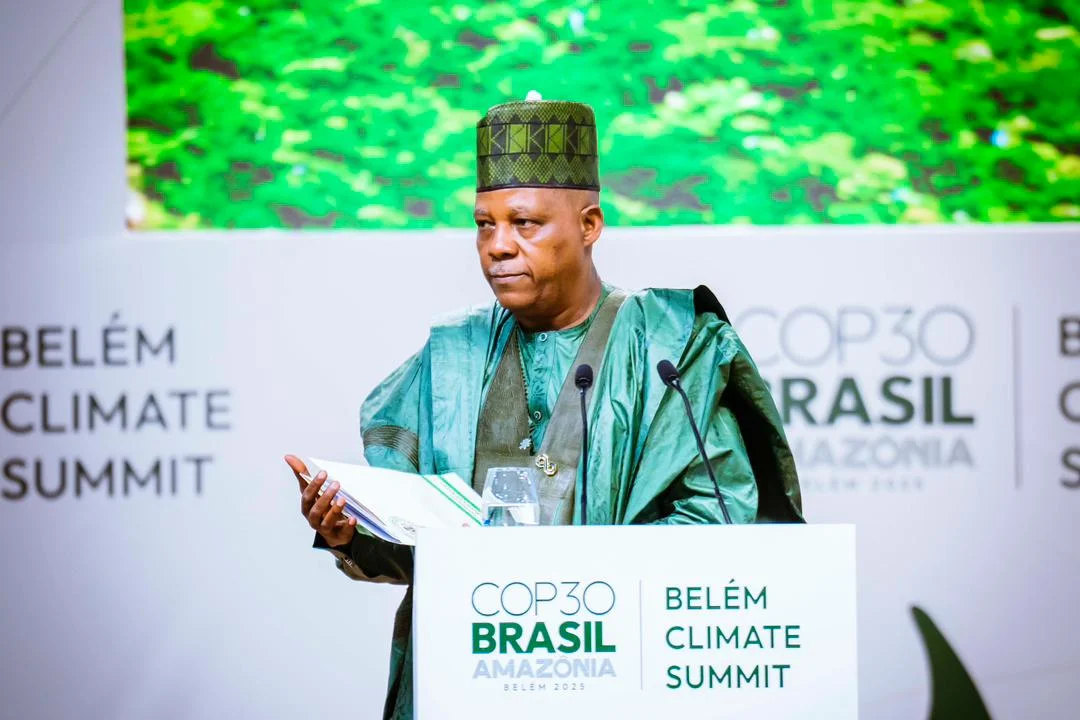By Salisu Sani-Idris
The Federal Government has implored the international community to significantly increase global financing to protect and restore nature’s economic value through predictable, equitable and accessible funding mechanisms.
The Vice-President, Sen. Kashim Shettima, made the demand in Belém, Brazil,
at a high-level thematic session titled “Climate and Nature: Forests and Oceans.”
The event held on the margins of the ongoing United Nations Climate Change Conference (COP 30).
According to him, since forests, landscapes, and oceans are shared resources that are outside the jurisdiction of any single nation, their protection requires global solidarity.
Shettima regretted that while nature is probably the most critical infrastructure in the world, it has long been treated as a commodity to exploit, rather than an asset to invest in.
The vice-president said “Nigeria is solidly driven by this knowledge to integrate nature-positive investments into its climate finance architecture.
“Through our National Carbon Market Framework and Climate Change Fund, we aim to mobilise up to three billion U.S. dollars annually in climate finance.
“These resources will be reinvested in community-led reforestation, blue carbon projects and sustainable agriculture.
“We call on our global partners to recognise the economic value of nature and to channel significant finance towards protecting and restoring it through predictable, equitable and accessible funding mechanisms.”
Shettima contended that the Global South countries that contributed least to this crisis are today paying its highest price.
He insisted that for climate justice to be seen as well served, nations that benefited more from centuries of extraction must now lead in restoration.
He, therefore, urged the global community to increase grant-based finance, operationalise Blue Carbon Markets and implement debt-for-nature swaps to enable developing countries to invest in conservation.
“We urge the international community to scale up grant-based finance for nature-based solutions and implement debt-for-nature swaps that free developing countries to invest in conservation, operationalise Blue Carbon Markets under Article Six of the Paris Agreement and strengthen community-led governance.”
He noted that such investment would enable indigenous people, farmers and fisherfolk to get reward for their stewardship, rather than be displaced by it.
The vice-president said countries that took their forests and oceans for granted had always paid dearly for it.
He explained that “it is the reason why Nigeria will boldly sit in the front row of any global forum where these twin determinants of ecological order are being discussed.
“We, too, are under siege. We see the signs of danger in deforestation, desertification, illegal mining, coastal erosion and rising sea levels within our borders.
“The Sahara advances by nearly one kilometre each year, displacing communities and eroding livelihoods. Each piece of land these threats overcome invites conflict into human lives, compounding our development challenges.”
Shettima told the world leaders and other participants at the high-level session that Nigeria’s Climate Change Act 2021 enshrines nature-based solutions as legal obligation of the state.
He, however, said “the nation is taking bold, coordinated steps to restore balance between climate, nature and development.
“Our National Council on Climate Change provides the institutional backbone for integrating climate actions into all sectors of governance.
“We are implementing the Great Green Wall Initiative, reforesting degraded lands across 11 frontline states, planting over ten million trees and creating thousands of green jobs for our youths and women.
“Through our National Afforestation Programme and Forest Landscape Restoration Plan, we aim to restore more than two million hectares of degraded land by 2030.
“We have also launched our Marine and Blue Economy Policy to harness the vast potential of our seas sustainably — promoting climate-smart fisheries, coastal protection and marine biodiversity conservation.”
Shettima reaffirmed Nigeria’s commitment to working with partners across the globe to advance global agenda where climate action becomes synonymous with nature restoration and human prosperity. (NAN)(www.nannews.ng)
Edited by Hadiza Mohammed-Aliyu












